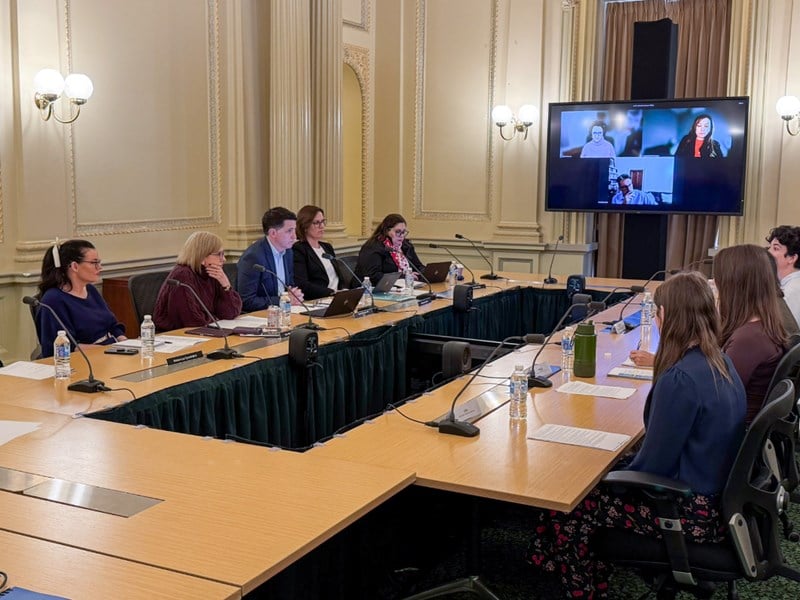Consultation inquiry engaging far and wide
7 October 2025
A variety of organisations representing a diverse range of community members have spoken directly and openly to members of parliament about consultation practices in Victoria.
A consistent theme emerging from the public hearings is some stakeholders are often subject to consultation which can feel either ‘tick-box’ or ‘tokenistic’.
Youth Affairs Council Victoria’s Lauren Frost told the Legislative Council Environment and Planning Committee young people’s voices after often underrepresented in community consultation, tokenised or rarely included in government decision making.
‘Young people are experts of their own lives, they have the contemporary real-world knowledge and experience of issues and opportunities impacting them and their communities,’ she said.
‘Too often young people are left out of the conversation, they’re given limited meaningful opportunities to contribute, or discussions are held too late and as a bit of a tick-box exercise.’
Ms Frost said feedback and transparency about the process is also vital.
‘It is so crucial, because if young people – anyone really – are participating in consultation and they give their personal experiences, their expertise, their thoughts, but then they do not hear back about how that was taken on board or what happened as a result of that, it massively reduces their likelihood to participate in consultation again,’ she said.

Disability Advocacy Victoria’s Julie Phillips raised similar concerns.
‘What our experience is that government makes a decision, such as the merger and closure of disability specific regulators and then approaches a couple of disability organisations and says, "do you want to give some input on how we should implement it".
‘Our approach to that is that we will not consult on decisions that have already been made.’
Juggling competing professional and personal priorities has also been highlighted as a barrier to consultation.
‘Over a third of carers are doing more than 40 hours of care support a week,’ Judith Abbott from Carers Victoria said.
‘You can imagine if you’re balancing that against everything else in your universe, it doesn’t leave you much time.’
The Municipal Association of Victoria (MAV), which advocates for local governments, pointed to World Economic Forum and United Nations data which ranks the pervasive elements of mis- and disinformation in social and political contexts at the top of their global risk indexes.
‘Community consultation now occurs within an eroded informational context that should be a central concern to all tiers of government,’ MAV’s Ika Trijsburg said.
The Committee also heard from representatives of the Department of Government Services who specialise in digital transformation at its third public hearing on 15 September.
The use and effectiveness of online platform Engage Victoria was discussed, including possible areas for improvement.
More broadly, the inquiry is continuing to examine how state and local government, statutory authorities and essential service providers consult with communities and whether certain groups or regions are underrepresented by existing consultation practices.
The Committee has gathered evidence from a range of peak bodies, academics, consulting organisations and individual community members.
It has also received 131 public submissions which are published on the Committee’s website.